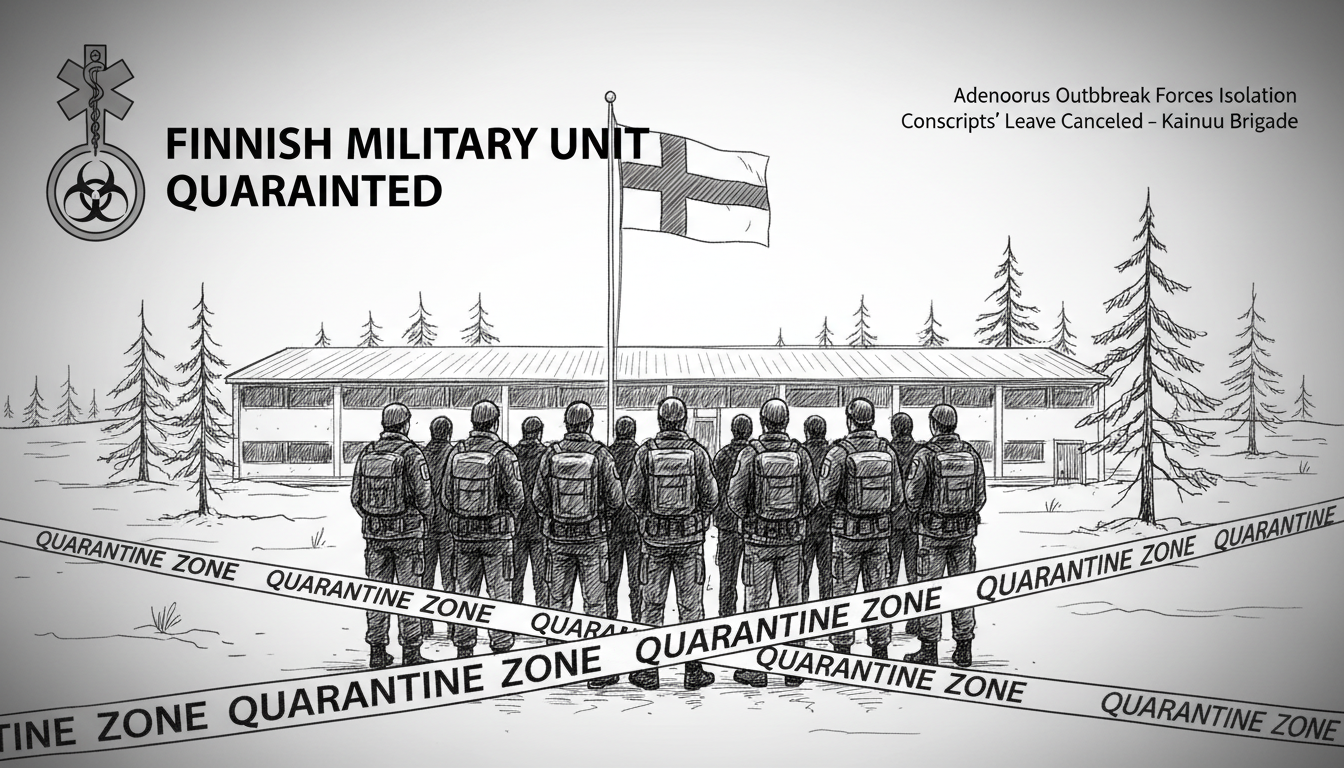A Finnish military brigade has isolated an entire unit for one week following an adenovirus outbreak. The Kainuu Brigade made the announcement on Friday. All leave and free time for conscripts in the affected unit have been canceled. The soldiers will have no contact with personnel from other units during this period.
The quarantined unit has detected a virulent strain of adenovirus causing serious symptoms. This marks the second outbreak of this particular virus type within the brigade since last March. Military medical teams have increased testing among the affected conscripts.
These containment measures aim to slow the virus spread within the garrison. The actions seek to prevent a full-scale epidemic from developing. The Finnish Defense Forces report increasing respiratory infections across all units as autumn progresses.
The Centre for Military Medicine is analyzing the current adenovirus situation. Their assessment suggests proper containment measures after initial detection could have potentially prevented or significantly slowed the outbreak. This raises questions about response protocols in military settings.
Military conscription remains mandatory in Finland, with approximately 21,000 conscripts completing service annually. The Kainuu Brigade, located in eastern Finland near the Russian border, plays a crucial role in national defense. Disease outbreaks in such concentrated populations present unique challenges for military readiness.
This incident highlights the ongoing health management challenges in military environments. Close-quarter living conditions in barracks facilitate rapid virus transmission. The Finnish military has faced similar health crises in past years, particularly during seasonal transitions.
International readers should note that Nordic countries maintain extensive conscription systems despite their advanced welfare states. Finland's 900-kilometer border with Russia adds strategic importance to maintaining combat-ready forces, making health disruptions particularly concerning for national security planners.
The current response follows established protocols for military health emergencies. However, the repeated nature of these outbreaks suggests systemic vulnerabilities in preventive healthcare for conscript populations. Military officials now face the dual challenge of maintaining operational capacity while managing public health risks.

